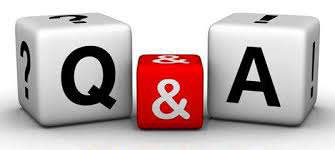Correct uses of English

1. This is more better!
Quite simply put, the comparative degree of a word like ‘beautiful’ is ‘more beautiful’ and its superlative is ‘most beautiful’ and not ‘beautifuller’ and ‘beautifullest’ because there are no such words in the dictionary :-)
Similarly, the comparative degree of ‘good’ is ‘better’ and its superlative is ‘best’.
The idea of a double comparative isn’t just grammatically incorrect but can also confuse the listener.
Wherever English words change in form/nature, while illustrating comparison, they need to be used by themselves.
For example: easy, easier, easiest or good, better, best.
However in cases where this does not occur/such possibilities do not exist, one can use ‘more’ and ‘most’ as modifying words, to show comparison.
For example: beautiful, more beautiful and most beautiful.
Instead say: This is better!
:-)
2. You are kindly requested to board the aircraft immediately.
Indians tend to be polite to a fault.
Much of this is reflected in the way we speak.
A request presumes politeness.
Often we feel adding ‘kindly’ to the sentence makes it sound even overtly polite.
Instead say: You are requested to board the aircraft immediately.
3. I was struck in traffic.
Struck is the simple past tense of strike.
Stuck is the simple past tense of stick.
When you say you’re struck, it means you’ve been hit by someone or something.
For example:
The thug struck me with a baton.
The car was struck by lightning.
Instead say: I was stuck in traffic.
4. Light is gone!
This would be correct if we were, let’s say, referring to someone’s passing away.
Jawaharlal Nehru, announcing the assassination of Mahatma Gandhi famously said: “The light has gone out of our lives.”
If however you are referring merely to a power failure, say it as it is!
Consider saying: There’s been a power failure!
5. He is like that only.
Yet another example of what happens when you translate word to word from a local language (in this case, Hindi)!
Think of how you’d say it in Hindi: “Yeh ladka aisa hi hai!“
When you really just want to say: This is just how he is!
6. I climbed a bus
This is a classic example of what happens when we translate from a native Indian language to English.
In this case, the sentence in Hindi would read: Main bus mein chadha.
The key to speaking any language is to be able to think in that language.
You don’t climb a bus, unless of course you’ve climbed atop a bus.
You board a bus.
Similarly:
You mount a horse.
You take the stairs.
You climb a mountain.
Therefore say: I boarded a bus
7. I had butter chicken at that hotel.
Butter chicken is a wonderful dish; trust us, we know! :-P
But here’s the problem.
A hotel is an establishment that provides lodging; a restaurant is a place that serves food.
So if you’ve had, let’s say, butter chicken, there’s a good possibility you’d have had it in a restaurant and not a hotel.
Your hotel may have a restaurant on its premises but it would still be incorrect to say that you’ve had it at the hotel; technically, you were most likely sitting in the restaurant.
Of course, you could have also ordered it as part of room service but let’s not go down that road right now.
Some hotels have restaurants; others have cafes and/or bars; some have all of them and more… also a discussion best left for another day. :-)
So don’t say: I had butter chicken at that hotel.
Instead say: I had butter chicken at that restaurant.
Moving on…
8. This is a gift from my co-brother.
Indian languages are very specific about relationships!
It’s almost as if we want the other person to know precisely how someone is related to us.
It is in many ways a great thing; there’s no confusion; everyone knows who’s who, which can be very helpful when your e-n-t-i-r-e family shows up at your wedding.
Sadly, that cannot be said of English.
A cousin could be your chacha‘s daughter or your mama‘s son!
Granny is your father’s mother and your mother’s mother!
Sister-in-law could be your wife’s sister or your brother’s wife!
But such are the quirks of the English language.
A ‘co-brother’ however is a seemingly Indian invention.
He is your wife’s sister’s husband.
It’s one thing if you’re talking about him within a group of friends. But if you’re speaking, let’s say, in a formal set-up, ‘co-brother’ is entirely avoidable.
Consider saying: This is a gift from my sister-in-law’s husband.
9. Where’s my keybunch?
The singular problem with this sentence is this:
There is no such word as ‘keybunch’!
Instead say: Where’s my bunch of keys? :-)
10. Everyone in Delhi has big, big cars.
Yet again, a case of literal translation from Hindi:
Delhi mein sab ke paas badi-badi gadiyan hoti hain!
Instead say: Everyone in Delhi has large cars.
11. Please close the fan!
Think of how you’d say this in, let’s say, Hindi:
Please fan bandh karo!
Right?
And that’s the problem.
You close a book.
You close down a business.
But you don’t close a fan.
Therefore say: Please turn off the fan!



